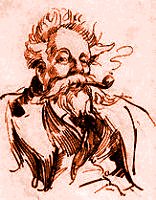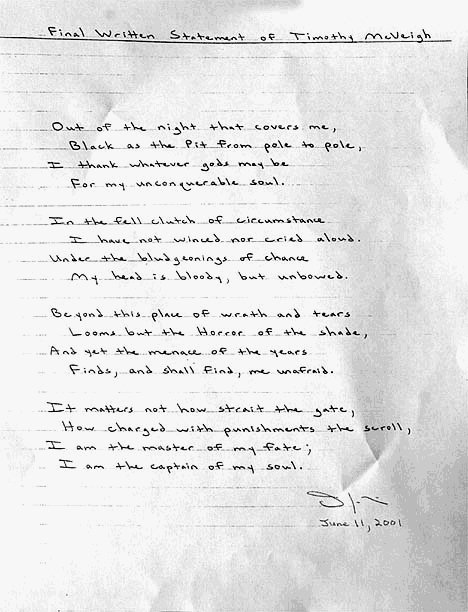written prior to his execution in Terre Haute, Indiana
June 11, 2001
(Federal Bureau of Prisons)
The statement consists entirely of the poem Invictus written by William Ernest Henley in 1875.
 William Ernest Henley
by Harry Furniss National Portrait Gallery, London |
William Ernest Henley (1849-1903) William Henley was a British poet, editor and critic. Tuberculosis took one of his feet as a child, and almost claimed another leg as a young adult. While recovering from surgery in an Edinburgh infirmary, Henley began a friendship with author Robert Louis Stevenson. (Stevenson said that the gregarious Henley provided the inspiration for his character Long John Silver.) His impressionistic poem-writing career began about the same time. Among his earliest works was his best known, Invictus, with its famous concluding lines: “I am the master of my fate; / I am the captain of my soul.” In 1889, Henley assumed the post of what became the influential conservative journal, the National Observer. |

